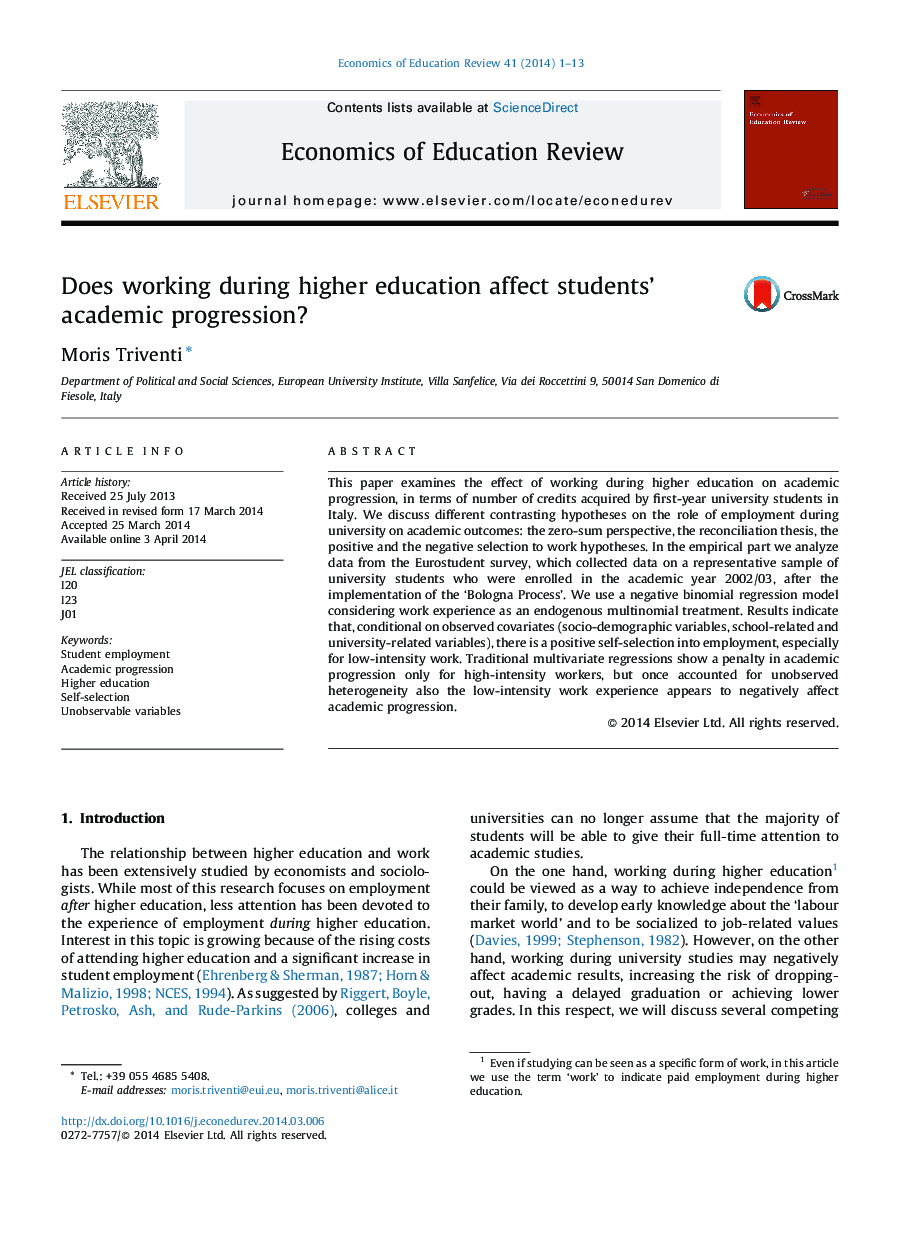| Article ID | Journal | Published Year | Pages | File Type |
|---|---|---|---|---|
| 6840901 | Economics of Education Review | 2014 | 13 Pages |
Abstract
This paper examines the effect of working during higher education on academic progression, in terms of number of credits acquired by first-year university students in Italy. We discuss different contrasting hypotheses on the role of employment during university on academic outcomes: the zero-sum perspective, the reconciliation thesis, the positive and the negative selection to work hypotheses. In the empirical part we analyze data from the Eurostudent survey, which collected data on a representative sample of university students who were enrolled in the academic year 2002/03, after the implementation of the 'Bologna Process'. We use a negative binomial regression model considering work experience as an endogenous multinomial treatment. Results indicate that, conditional on observed covariates (socio-demographic variables, school-related and university-related variables), there is a positive self-selection into employment, especially for low-intensity work. Traditional multivariate regressions show a penalty in academic progression only for high-intensity workers, but once accounted for unobserved heterogeneity also the low-intensity work experience appears to negatively affect academic progression.
Related Topics
Social Sciences and Humanities
Economics, Econometrics and Finance
Economics and Econometrics
Authors
Moris Triventi,
